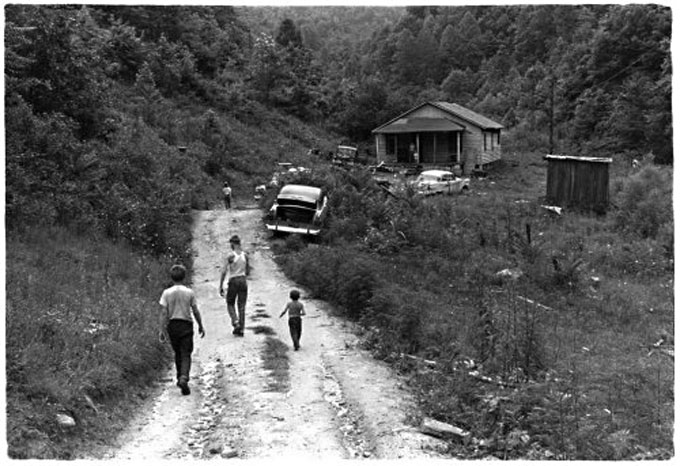Walking Hills
Just over a rise, I glimpse a starred truck windshield,
a beveled dresser-mirror, the reverse lives of the trees.
I’m walking the switchbacks from the ridge and down,
skidding, grabbing at a sassafras branch here and there.
A friend has been sending emails about haunted places
in Parkersburg. I think Ghosts and stare into the mirror
become a slope to a river, the river, the flanking hills.
In this light, apparitions are legion. Flashes of anger
and escape from home, if home is these hollows.
Some days, I could bet myself a fifth of scotch
this much of the earth is God’s country and win,
but today a busted windshield is splendoring into
the unbroken part of itself. I’m rectangular, a casket
with eyes and hair and a mouth—wasn’t it Mark Twain
who said humans make graveyards of the beautiful places?
It starts to rain. I duck inside the ruined truck. The roof
is like correspondence with a friend: not much cover.
Rain becomes the calm and storms and calm again
that is Appalachia: isolating voices, old-old hurts,
and a need to hurt others some carry like a handsel.
I’m told that I’m a threatening presence. Dangerous.
And I’ve been told to lower my voice when speaking
so that bystanders won’t think that I’m about to strike.
But I am about to strike: I begin to bust the windshield
the rest of the way out as I would’ve done years ago
surrounded by big-hearted boys from around here.
Boys who became men who make others nervous.



I live in that area now, or on the edge of it. This is a profound poem because the voice in the poem is a part of all he experiences and cannot extricate himself, as he is woven into the text that he fabricates.
I live in the foothills of the Appalachians and love this poem for the truth it tells of the lack of opportunity, the disregard shown by the outside world, the turning children of promise into bitter, impoverished, angry men and frightened, invisible, workhorse women. Every word, every line of this poem is necessary, in its place, contributing to and enlarging the effect of the whole poem.
This is a good and true and powerful read.